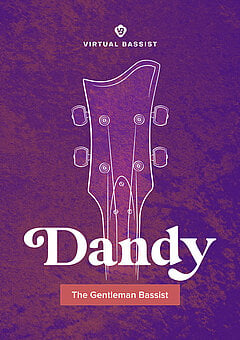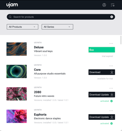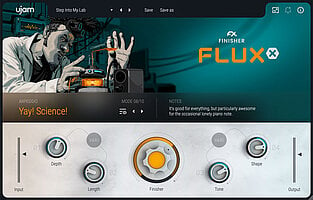How to Write a Song Quickly
How to consistently generate song ideas with less stress, rapidly improve your writing skills and release more music.
NOVEMBER 15TH, 2020
We covered the songwriting process in great detail in our Top 10 Tips for Songwriters post--if you want to dive deep into the songwriting process and learn more about the craft, be sure to start there. This article will be solely focused on tips to accelerate your writing, so it’s important to be solid in the fundamentals first. Once you feel you’re ready, read on!
Stockpile as many ideas as possible
Do you have a bunch of DAW sessions you said you’d go back to someday (or swore you never would)? It’s time to put them to use. However, you’re only going to pluck out the ideas you find it easy to work with.
If you like a piece of music you started but have no idea how to finish it, that’s perfect! Export the MIDI or re-record the parts you like best into a new session. The act of pulling your material out of the original session is going to make it so much easier to work quickly. If you do put in the effort to re-record it, it’s highly likely inspiration will strike and your ideas will automatically send you in a new (and probably better) direction than before since you’ll have a new perspective on it.
So every time you get an idea down in a DAW session or just write down a melody or chord progression, file it away using a system you can understand and access later. Ultimately you’ll build up hundreds (if not thousands) of abandoned musical ideas--and that’s exactly what you want. You’ll have plenty of days where you need a quick win and nothing’s coming to mind, but if you build an archive of unfinished ideas, one of them is bound to come in handy even during your driest spells.
Deliberately write something awful
When you can’t think of anything good, make something bad. It’s actually a great mental hack for boosting your confidence, because you get to effortlessly set and accomplish a goal, even if it’s a trivial one. We’ve addressed this a bit in past articles, but there’s another reason this is so valuable.
The more bad music you’re willing to create, the more practice you get in with the same amount of time. It also allows you to build your idea library faster. When you allow yourself to temporarily forget about quality, you’re greasing your music production wheels; they might be rough and uneven, but at least they’re moving!
The more you write, the faster you’ll be able to identify which ideas are good and which are bad; ironically, not judging yourself for most of the writing process allows you to make much more useful critiques of your own work later, because you're separating the creation process from editing. Once the ideas are recorded and juiced up, then you can go back to them with a critical ear.
Render your audio tracks while you work
Making fewer decisions, faster, is one of the best ways to increase your music production speed; this doesn’t come naturally for most people. But there is a way to force yourself to become more efficient at this: the moment you think you’re happy with the way an instrument sounds, render it in place. This will typically record it into a new audio track without any of the plugins you added, ensuring that you can’t make any more tweaks (no matter how much you may want to), leaving you with nothing more than an audio file and zero effects.
Yes, it’s frustrating not being able to make changes. But it’s going to improve your ability to finish songs without second-guessing yourself, which could even cut your production time by more than half.
It’s fine if your next few songs sound “worse”; you’re retraining yourself into a new way of thinking and writing that will pay off many times over. Soon you’ll find that the quality of your productions is back up to normal, and you’ll improve more rapidly than ever!
Use elements from as many different genres as possible
This will massively help your inspiration, as you’ll have more reference points to pull from. But there are plenty of other practical benefits to it as well.
Different genres have common forms: Dubstep is often centered around 2 drops, folk follows a standard verse + chorus approach, progressive house gradually adds and subtracts elements, etc. Every genre also has its own chord progressions that border on overuse; but you can use the traps of one genre as a jumping off point for others.
Try this, for example: Take a look at the structure of your favorite EDM track, use one of your favorite R&B chord progressions, and borrow instruments from acoustic rock. Sound contorted and difficult? If you know multiple genres quite well, this actually makes the writing process easier.
When you take such an eclectic approach, you reduce the expectations placed on your songwriting and production, simply because it’s unique; your listeners will be more focused on dissecting your influences and marveling at your creativity! By contrast, if you write something generic, you’d better have some incredible production abilities that make you stand out. So spend your time doing something different, and you’ll save yourself a lot of work! (Production skills are incredibly important, but it helps to have more intriguing things for your listeners to latch onto.)
Songwriting tools to help you go faster
Letting go of the fine details on guitar and bass parts can save you a lot of time as you write music; with Virtual Guitarist SPARKLE and Virtual Bassist DANDY, you can build an excellent rhythm section for pop, funk, R&B and other genres just by pressing a few keys. This can easily save you hours of manually working on your instrument tracks or from having to bring on additional musicians. To see SPARKLE in action, check out this video:
Once you have a rough direction for your chord progression, melody and bass line, you can enter them into your DAW and have these tools take care of the rest. The included phrases come straight from professional musicians, so you can let your Virtual Guitarist and Bassist handle the fine details!
There are plenty of non-plugin songwriting tools as well. This article from MusicCity Song Star presents some very low tech options which at first may seem obvious, but there’s a good chance you can still get a lot more out of them than you already are.
Bringing it all together
You want to improve your songwriting abilities as often possible, but be careful to monitor the amount of time you spend on it. Always be on the lookout for areas you can speed up or even cut out completely. By adopting this habit, you’ll create far more songs in the same amount of time, effectively giving you more practice for the same level of commitment.
One of the silent killers of songwriting productivity is second-guessing yourself, and you’ll want to take every opportunity to eliminate that habit. The ability to objectively critique your own music is invaluable, but you should know how to pull back when you’re focused on writing more music--then you can come in with improvements once you already have plenty of ideas laid out in front of you.
And always remember: the more decisions you can eliminate, the more inspired your music will feel and the faster the entire process will become for you. So be sure to focus on the things that will help you finish music, ruthlessly cutting out anything that doesn’t make the process more efficient or fun!
Stay Up To Date
Sign up and we’ll send you an e-mail with product news and helpful stuff every now and then.
Defy Limits
We develop software solutions that enable people to create, consume and interact with music.


